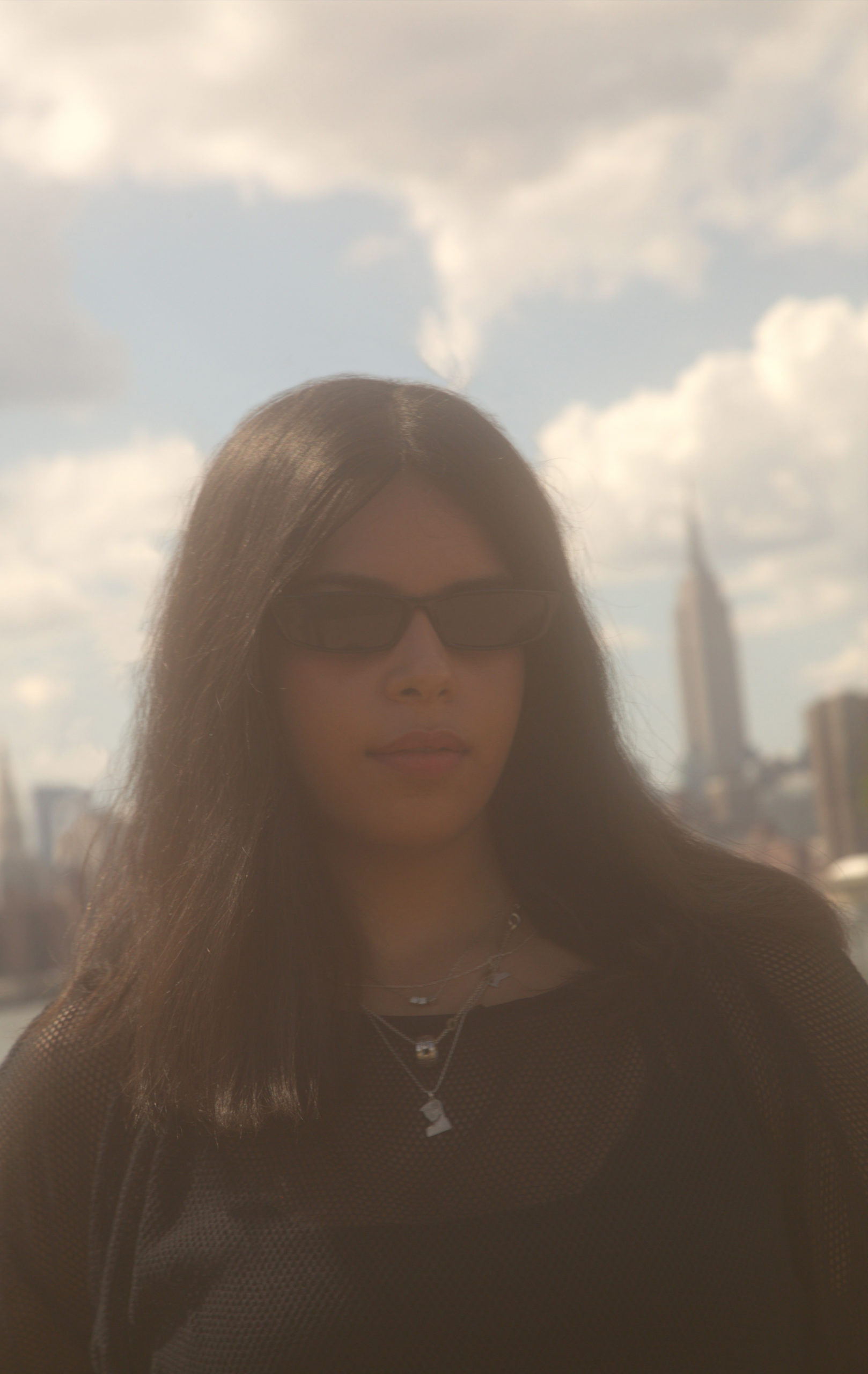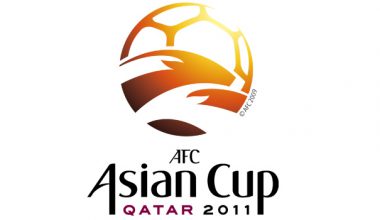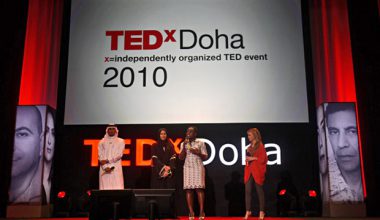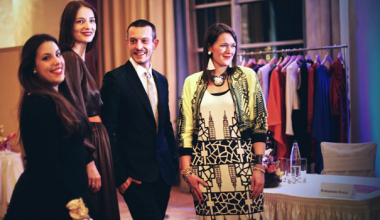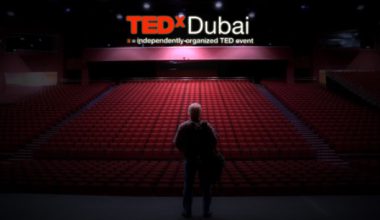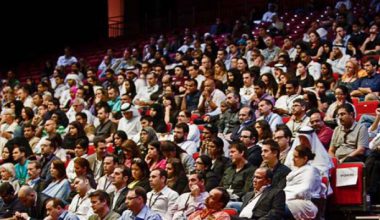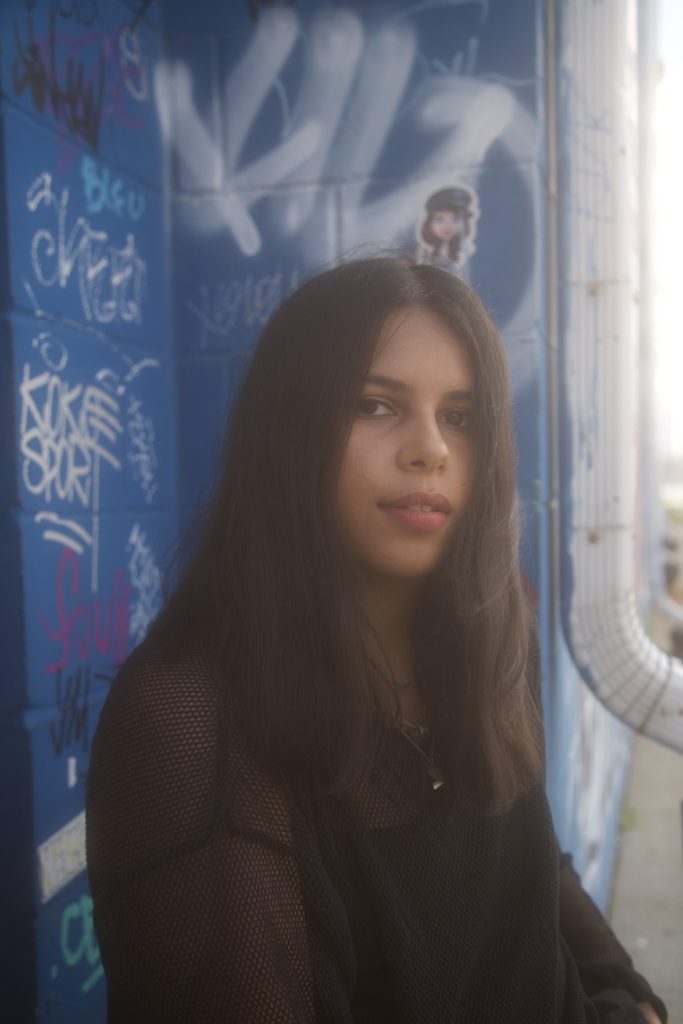
Haya Alghanim is a filmmaker based between Kuwait and New York who recently earned her MFA in Film from Columbia University. With everything currently on hold – funding, festivals, and labs – the emerging writer, director, and producer has been spending the past few months planning and working on her first full length feature. Her style of filmmaking privileges experimentation and flexibility in the pursuit of craft.
Haya Alfarhan spoke with the filmmaker over the phone and email about her creative journey, the state of the film scene in the Arab world, and the difficulties of navigating the industry.
Haya Alfarhan: Can you talk us through your journey as a filmmaker?
Haya Alghanim: I always had a passion for cinema and fantasized that I would one day be a filmmaker, but it always felt more like a fantasy than a realistic possibility. Making films was not framed as a possible career path for me by society, which is why I did not view it as a potential path for myself. When I moved to New York to study at The New School, I began to dabble in the form of filmmaking by taking the relevant classes. I worked on my technical skills while I was completing my bachelor’s degree, focusing on camera, lighting, and editing. I then became a cameraperson and editor for a documentary within a year of training, and that became my first official gig. After a few years of training and freelancing, I started working on my own short films. Since then, I’ve gained the experience and confidence needed to start telling stories I believed in as a writer, director, and producer.
HF: What films inspired you?
HBG: Growing up, I was inspired by films that spoke directly to parts of my life or films that gave me the wildest escapes from reality. The first films that inspired me most are the early works of Quentin Tarantino and David Lynch. As I became exposed to more films and filmmakers after moving to New York, I’ve grown attached to Mira Nair’s work, notably Monsoon Wedding (2001), and Leyla Bouzid’s As I Open My Eyes (2015).
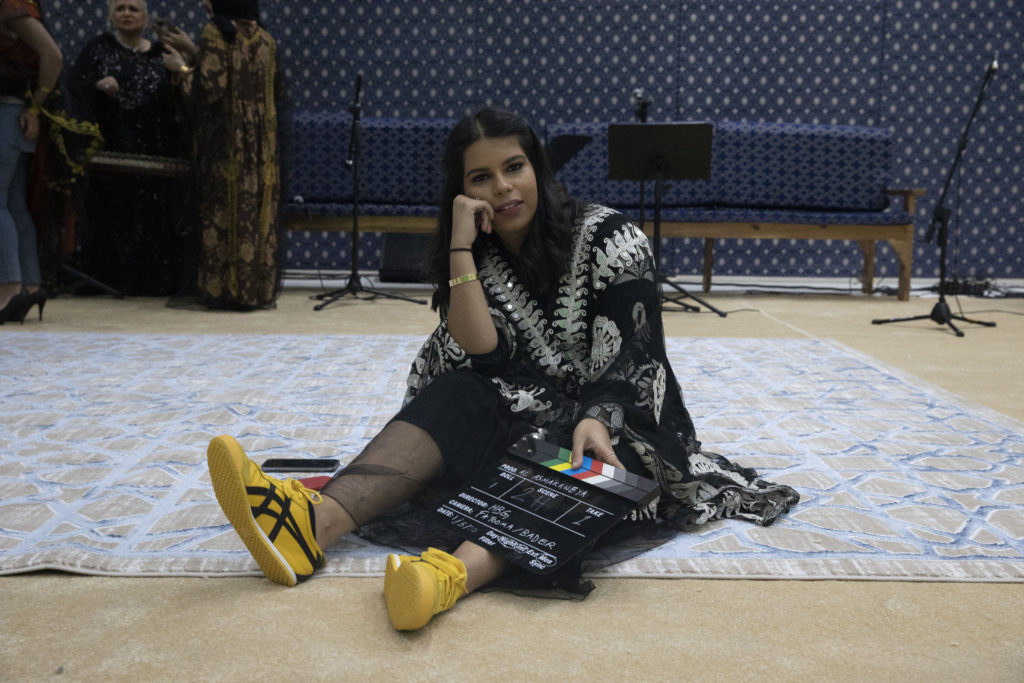
HF: What challenges did you encounter upon starting out in the industry?
HBG: The biggest challenge I faced when starting out was not knowing where to start. I knew I needed a form of support that I was not getting from my community or industry, so I sought out the support I felt I needed by attending film school. I was part of a community of people who were going through the same thing and wanted to succeed at what they were doing. We supported each other’s visions, which in turn made filmmaking less daunting. When I first started out, I felt like every decision I made was a risk. And now every other decision still feels like one, but I know there wouldn’t be any pay off without those risks. The lack of support I received and the challenges I faced when I was starting out led me to create my own production house, New Arab Cinema. My aim is to provide Arab filmmakers with the encouragement, backing, and protection they need at whatever point they might be in their respective journeys.
HF: The Gulf film scene is arguably very much in its infancy, have you been able to find a community in other young filmmakers and collaborators? Has it impacted your style of filmmaking at all?
HBG: With every project I’ve made in the Gulf, I kept meeting more and more young creatives freelancing in production fields with a burning desire to make films and tell stories that are important. They’ve inspired me to make the Gulf the setting for more of my future projects so that I am able to create opportunities and collaborate with them. My style of production is ever changing as I try to adapt to the environment and system I’m shooting in. As a director or writer, I push myself to try new things to develop my aesthetic.
HF: How do you approach balancing your desire to capture stories from a region with a recently emerging film scene? Do you find it liberating that there is more room to experiment aesthetically within a film industry that is still developing, or do you try to draw inspiration from other Arab art forms?
HBG: A large source of my inspiration is drawn from Arab and Khaleeji life and culture, which has long gone unobserved. There is a wealth of material that has gone untapped, and the ability to experiment aesthetically is what is so exciting about making work in the Gulf. I’m constantly finding ideas to expand on and experiment with. I also actively watch films from all over the Arab world, which helps me understand how other filmmakers approach the challenge of creating representation without established references.
HF: How does your interest in capturing Arab culture influence the material you choose for your films? What is the nature of the stories that attract you the most?
HBG: There are so many parts of Arab culture that are unique to us and I find that empowering. In the stories I tell, I like to highlight details from our culture, sometimes unpacking them, sometimes celebrating them, or simply just displaying them as part of our world and presence. In my writing, I like to build characters and worlds inspired by traits, psychologies, and dynamics that I find interesting and worth understanding.
HF: Describe your audience member,
HBG: A person who watches films to learn, feel, and empathize.
HF: Where do you see Arab cinema heading?
HBG: It’s hopeful and reassuring to see that more young Arabs are making films while simultaneously seeing more Arab films reach global platforms. We also have a growing list of pioneers to look up to that are expanding the Arab film industry. Things are moving in the right direction, and there’s a demand for content. But we still have a long way to go.
HF: With the recent success of directors like Haifa Al Mansour, Nadine Labaki, and Laïla Marakachi over the past two decades, in your opinion, where does the Arab female filmmaker find a place for expression in the regional film industry?
HBG: We can’t deny the fact that it is much harder for women to gain success in the industry, let alone women from the region. Arab women who are breaking glass ceilings have been able to do so by supporting each other and continuing to collectively defy absurd rules and roadblocks. Our perspectives and voices as Arab women deserve to be heard and I hope that more Arab female filmmakers will continue to make work that cements our place in the industry and existence at large.
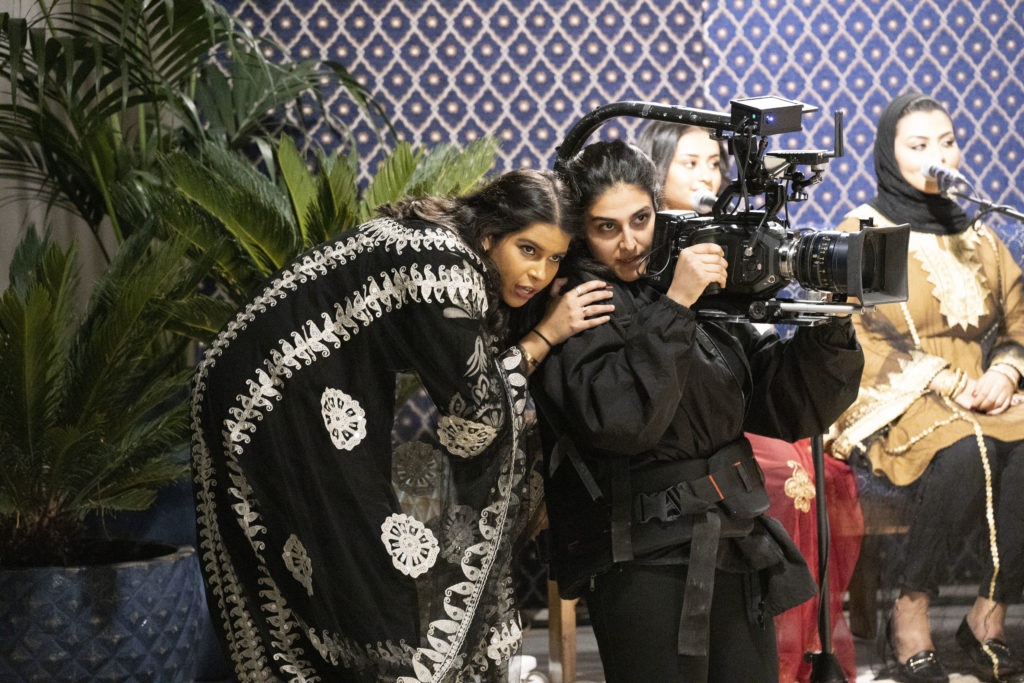
HF: Lastly, if you were to program a double feature what would it be?
HBG: I’m a cult movie fanatic and I love Pam Grier, so it would have to be Coffy (1973) and Jawbreaker (1999).
HF: Would you like to plug any new or upcoming projects?
HBG: I’m in post-production on my latest documentary short starring Laila Abdulaziz, a pioneer of music in the Gulf and staple of Kuwaiti history no one was ready for, not even herself. While working on finishing An Evening with Laila, I’ve also been writing my first feature film script, Road 250, which is selected for the upcoming Rawi Screenwriters Lab.
To watch more, click here!
For more on Haya Alghanim's work, click here!
Or visit Haya's Instagram here!
Words by: Haya Alfarhan
Images: Courtesy of Haya Alghanim

